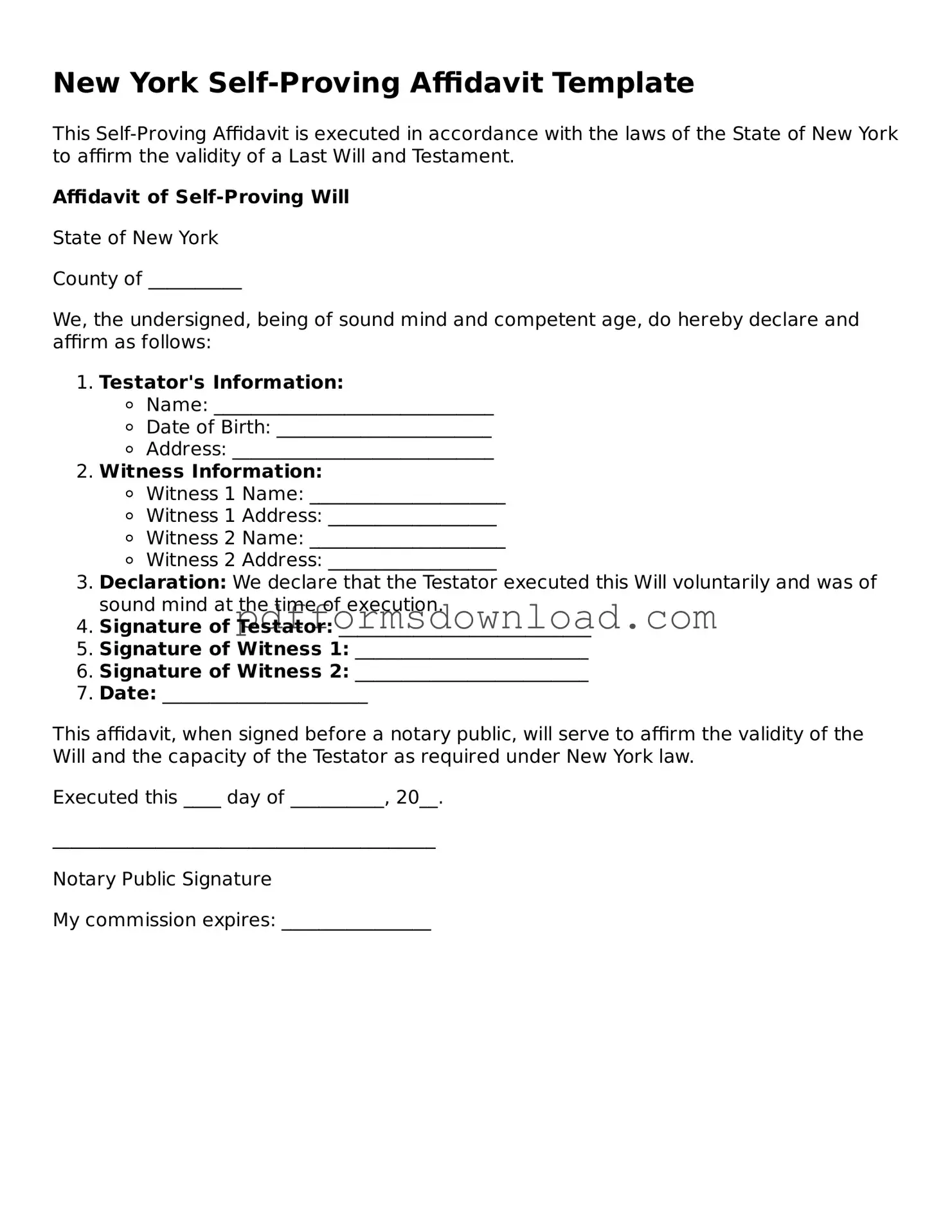Printable New York Self-Proving Affidavit Form
The New York Self-Proving Affidavit form is a legal document that allows a testator's will to be validated without the need for witnesses to appear in court. This form simplifies the probate process by providing a way to affirm that the will was signed and executed properly. Understanding how to fill out this form correctly is essential for ensuring that your wishes are honored after your passing.
If you're ready to fill out the New York Self-Proving Affidavit form, click the button below.
Make This Document Now

Printable New York Self-Proving Affidavit Form
Make This Document Now

Make This Document Now
or
Free PDF File
Your form is almost ready
Complete your Self-Proving Affidavit online — edit, save, and download easily.